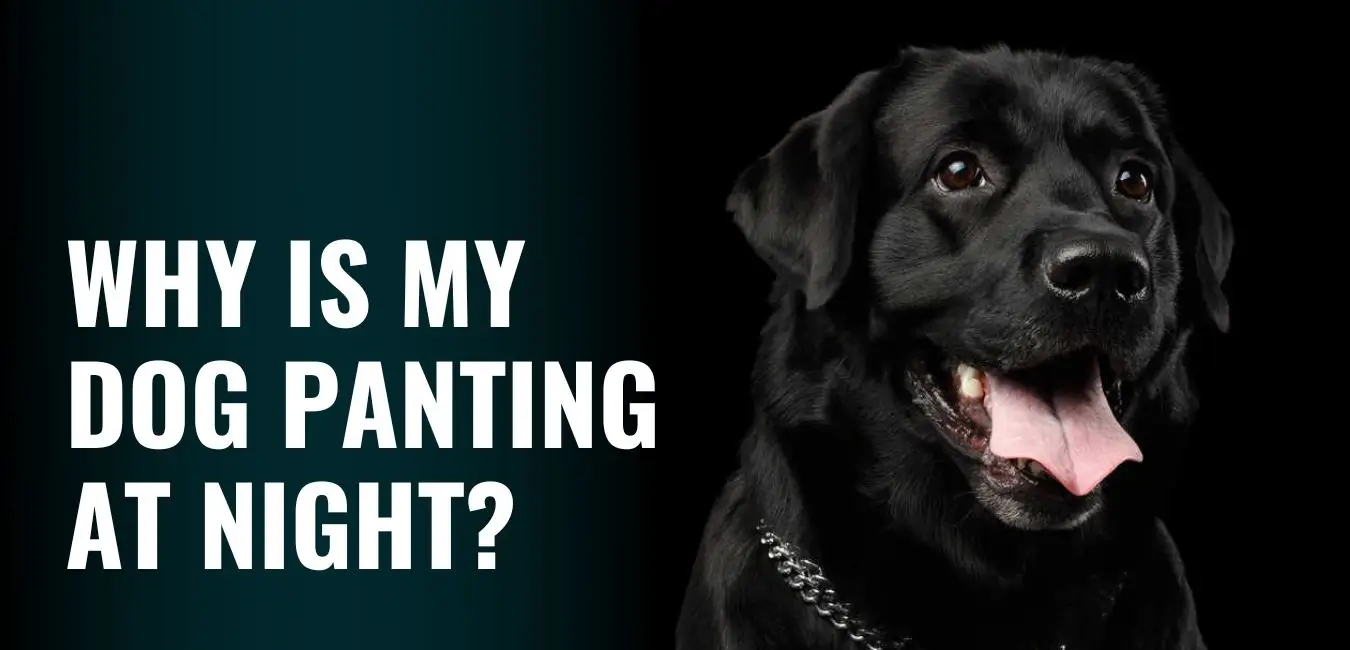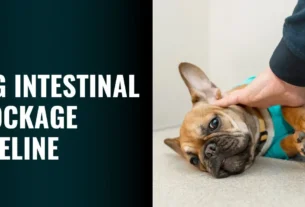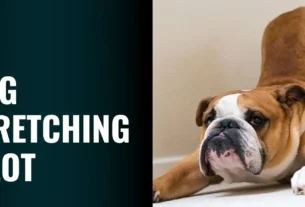Dog panting at night is one of the most critical concerns which has left many owners searching for answers regarding the causes and treatment. When your dog starts panting, it is not only a response to a warm environment but may also indicate some diseases or restless conditions that are not directly visible.
You have to pay great attention to know the reasons behind dog panting at night and restless. In this guide, I have detailed the cause, treatment, as well as preventive ways so you can know how to stop dog panting at night.
Why is My Dog Panting at Night – Top Causes
There could be several causes of dog panting at nighttime. There could be different conditions associated with it like restlessness and unfriendly behavior. You have to understand these reasons to make sure you can take care of your pet properly.
Here are the main causes:
- Temperature and Environment: Dogs primarily cool down through panting. If your dog panting at night and drinking lots of water, it could be because there is too hot surrounding.
- Anxiety and Stress: Nighttime anxiety, separation anxiety, or general stress can lead to behaviors like dog panting at night and restless. Moreover, there could be changes in routine, new environments, or loud noises that can trigger this.
- Medical Conditions: Health issues such as heart disease, respiratory problems, Cushing’s disease, or pain can cause nighttime panting. This is especially important for an older dog panting at night or a senior dog panting at night and drinking lots of water.
- Medications: Another reason for the dog panting is because some medicines have side effects in terms of increased panting.
- Excess Weight: Overweight dogs tend to pant more as their bodies work harder to function normally. This can also be the cause of dog panting at night.
When to Worry About Dog Panting at Night?
If your dog panting at night and drinking lots of water, or if it is accompanied by symptoms like coughing, lethargy, loss of appetite, or vomiting, it is important to seek veterinary advice, especially for a senior dog panting at night.
How to Diagnose the Cause of Dog Panting at Night?
The exact cause of dog panting at night is difficult to determine as it can be a common behavior or due to an ill situation. However, the following tactics can help in diagnosing and understanding these causes.
- Veterinary Consultation: A vet can perform exams, run tests, and get a detailed history to identify the cause, particularly for an old dog panting at night.
- Monitoring Behavior: You should pay attention to any changes in behavior or environment that might correlate with the panting.
- Environmental Factors: Evaluate if the room is too hot or if there are new stressors causing anxiety, leading to a dog panting at night behavior.
How to Treat Dog Panting at Night?
When it comes to dealing with a dog panting, you have to identify the primary causes and take appropriate action. The following practices can help you greatly in treating your pet animal.
1. Cool the Environment
Dogs often pant at night to cool down. You have to make sure that their sleeping area is cool and comfortable. Here are some steps to achieve this:
- Adjust Room Temperature: Use fans or air conditioning to keep the room cool.
- Provide Fresh Water: Always have fresh water available to help your dog stay hydrated.
- Cooling Mats: Use cooling mats or beds designed to dissipate heat and keep your dog comfortable.
2. Reduce Stress and Anxiety
Stress and anxiety can also be the cause of night panting in dogs. You can help your dog feel secure by the under mentioned steps:
- Create a Peaceful Environment: You have to maintain a quiet and peaceful sleeping area to avoid unnecessary disruptions
- Use Calming Products: Products like calming sprays, diffusers, or anxiety wraps can help reduce stress.
- Regular Routine: Stick to a consistent routine to provide a sense of stability and security to your pet
3. Manage Medical Conditions
As I mentioned earlier, panting can be a symptom of a numerous medical issue. To deal with such conditions, you can do the following.
- Consult a Vet: If the panting of your dog is accompanied by other symptoms like coughing, lethargy, or excessive drinking, visit your vet for a thorough examination.
- Follow Treatment Plans: If your vet prescribes medications or treatments for conditions like heart disease or respiratory problems, ensure you follow them properly.
4. Monitor Medications
Certain medications can cause increased panting as a side effect. This situation can be tackled with the help of the following ways:
- Review Medications with Vet: Discuss your dog’s medications with a professional vet to determine if they might be causing the panting.
- Adjust Dosages: A veterinary doctor may suggest adjusting the dosage according to the health status of your animal.
- Switch Medications: There could be a need to change or use the alternative of medicine you are currently using.
5. Address Excess Weight
Overweight dogs are more vulnerable to panting. That’s why it is important to manage their weight. The following are the key tactics you can opt for in this regard.
- Dietary Changes: You must give a proper and balanced diet to your dog as it helps in managing the weight. Consult a veterinary doctor as he can suggest you the best diet plan for your pet.
- Exercise: Ensure your dog gets regular exercise which is suitable to their age and health condition.
- Monitor Weight: Regularly monitor your dog’s weight and adjust their diet and exercise as needed.
6. Provide Comfort for Female Dogs
The primary reasons for a female dog panting at night can be different, ranging from metabolic issues to pregnancy. To reduce panting, you can follow these strategies.
- Comfortable Bedding: Provide comfortable beds that offer support.
- Regular Checkups: Schedule regular vet checkups to monitor their health and address any ill conditions.
- Pain Management: If your female dog has arthritis or other pain-related issues, follow the pain management plan as proposed by a vet.
Let’s Rewind
Dog panting at night is one of the most concerns and you have to understand its causes, treatment, and management practices. It is important to note that excessive panting during nighttime can be a response to several environmental as well as physiological conditions. Therefore, you have to pay a great attention to the underlying causes to determine the prevention strategies.
While some clinical diseases can lead to panting, it is necessary to consult a veterinary doctor. A professional vet can better examine if there is any disease to carry out the treatment. Hence, you will be able to save your pet.



